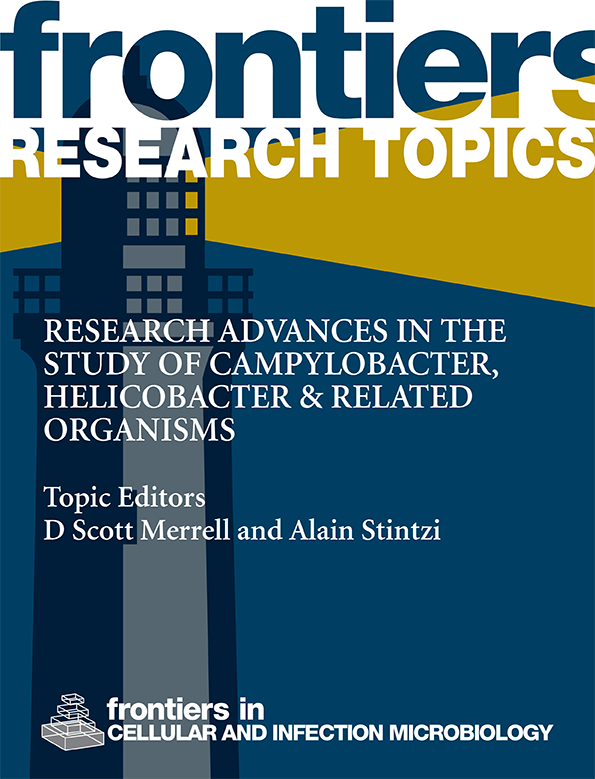释放短链脂肪酸在改善肠道粘膜免疫方面的能量:一种新的猪营养方法
IF 4.6
2区 医学
Q2 IMMUNOLOGY
Frontiers in Cellular and Infection Microbiology
Pub Date : 2024-09-02
DOI:10.3389/fcimb.2024.1449030
引用次数: 0
摘要
短链脂肪酸(SCFA)是有机脂肪酸的一个分支,其碳链长度为 1 到 6 个原子,包括醋酸、丙酸和丁酸。这些化合物是膳食纤维发酵的最终产物,主要由肠道微生物群中的糖酵解和磷酸戊糖途径催化。在动物营养领域,SCFAs 是重要的能量底物和信号分子,对肠道、免疫系统和肠道屏障功能有着深远的影响。具体来说,它们占反刍动物总能量需求的 60-70%,占单胃动物总能量需求的 10-25%。SCFAs 已证明能够有效调节肠道 pH 值,优化矿物质元素的吸收,并阻碍病原体的入侵。此外,它们还能增强肠道紧密连接相关蛋白的表达,刺激粘液的产生,从而改善肠道组织形态,保持肠道结构的完整性。值得注意的是,SCFAs 还具有抗炎特性,可减轻肠上皮内的炎症,增强肠屏障的防御能力。本综述力图综述有关 SCFAs 作为肠道微生物群代谢活动与猪细胞状态之间重要信号中介作用的最新研究成果。本综述还全面概述了目前有关 SCFAs 对猪肠粘膜免疫反应影响的文献。本文章由计算机程序翻译,如有差异,请以英文原文为准。
Unlocking the power of short-chain fatty acids in ameliorating intestinal mucosal immunity: a new porcine nutritional approach
Short-chain fatty acids (SCFAs), a subset of organic fatty acids with carbon chains ranging from one to six atoms in length, encompass acetate, propionate, and butyrate. These compounds are the endproducts of dietary fiber fermentation, primarily catalyzed by the glycolysis and pentose phosphate pathways within the gut microbiota. SCFAs act as pivotal energy substrates and signaling molecules in the realm of animal nutrition, exerting a profound influence on the intestinal, immune system, and intestinal barrier functions. Specifically, they contibute to 60-70% of the total energy requirements in ruminants and 10-25% in monogastric animals. SCFAs have demonstrated the capability to effectively modulate intestinal pH, optimize the absorption of mineral elements, and impede pathogen invasion. Moreover, they enhance the expression of proteins associated with intestinal tight junctions and stimulate mucus production, thereby refining intestinal tissue morphology and preserving the integrity of the intestinal structure. Notably, SCFAs also exert anti-inflammatory properties, mitigating inflammation within the intestinal epithelium and strengthening the intestinal barrier’s defensive capabilities. The present review endeavors to synthesize recent findings regarding the role of SCFAs as crucial signaling intermediaries between the metabolic activities of gut microbiota and the status of porcine cells. It also provides a comprehensive overview of the current literature on SCFAs’ impact on immune responses within the porcine intestinal mucosa.
求助全文
通过发布文献求助,成功后即可免费获取论文全文。
去求助
来源期刊

Frontiers in Cellular and Infection Microbiology
IMMUNOLOGY-MICROBIOLOGY
CiteScore
7.90
自引率
7.00%
发文量
1817
审稿时长
14 weeks
期刊介绍:
Frontiers in Cellular and Infection Microbiology is a leading specialty journal, publishing rigorously peer-reviewed research across all pathogenic microorganisms and their interaction with their hosts. Chief Editor Yousef Abu Kwaik, University of Louisville is supported by an outstanding Editorial Board of international experts. This multidisciplinary open-access journal is at the forefront of disseminating and communicating scientific knowledge and impactful discoveries to researchers, academics, clinicians and the public worldwide.
Frontiers in Cellular and Infection Microbiology includes research on bacteria, fungi, parasites, viruses, endosymbionts, prions and all microbial pathogens as well as the microbiota and its effect on health and disease in various hosts. The research approaches include molecular microbiology, cellular microbiology, gene regulation, proteomics, signal transduction, pathogenic evolution, genomics, structural biology, and virulence factors as well as model hosts. Areas of research to counteract infectious agents by the host include the host innate and adaptive immune responses as well as metabolic restrictions to various pathogenic microorganisms, vaccine design and development against various pathogenic microorganisms, and the mechanisms of antibiotic resistance and its countermeasures.
 求助内容:
求助内容: 应助结果提醒方式:
应助结果提醒方式:


